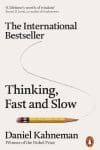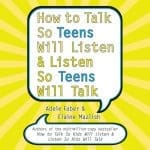Inspiring Sporting Excellence Blog
Helping Parents and Youth Coaches to Nurture Confidence, Resilience, and Joy in Sport
Raising a child or coaching children in sport brings joy and pride, as well as various challenges.
Many parents and coaches notice that children, from as young as 7 years old, can struggle with:
- Confidence before training or matches
- Anxiety and nerves when under pressure
- Disappointment after mistakes or poor performances
- Losing enjoyment when sport feels too serious
- Difficulty staying engaged and resilient through ups and downs
The Inspiring Sporting Excellence Blog is here to help.
It’s a practical library of articles rooted in kids sports psychology and sports psychology for children or young adults, giving parents and coaches simple, effective tools to support children’s sporting journeys.
Search Our Site

What You’ll Find Here
- Confidence-Building Tips – helping children believe in themselves on and off the pitch
- Resilience Strategies – teaching young athletes to bounce back after setbacks
- Managing Nerves and Pressure – practical advice for pre-match anxiety
- Keeping Sport Enjoyable – how to protect motivation and engagement
- Parental Guidance – how to encourage your child without adding extra pressure
- Coaching Resources – helping coaches guide their young athletes through difficulties
Every article is written with parents of children or coaches of youngsters aged 7 upwards in mind,
and includes developmentally-appropriate strategies for both younger kids, teenagers and young adults.
Our Most Popular Blog Posts For Parents and Coaches of Children
How to Support an Angry Young Athlete
How to Help Kids Overcome Performance Anxiety
How to Help Children Overcome Fear of Failure
How To Set Goals For Netball Success
How To Help Your Children Gain Self-Confidence
5 Tips for Parents To Help Their Children Perform with Confidence
How do I Help my Child to Focus in Sports?
Specific Sports
What Parents Wrongly Assume Sports Psychology For Children and Young Adults is
- “Fixing problems” – only for when their child has lost confidence, gets anxious, or is struggling badly.
- “Motivational pep talks” – like a coach or mentor who just boosts confidence with positive words.
- “Mind reading” – someone who can instantly spot what’s wrong and give the magic answer.
- “A quick fix” – a couple of sessions and the child will be mentally strong for life.
- “Only for elite athletes” – believing it’s not relevant unless their child is at academy or professional level.
- “Like counselling” – that the focus is only on emotions, rather than performance and skills.
What Are Common Misconceptions About Sports Psychology For Children?
It’s Only for Struggling Kids
Reality: Sports psychology is just as much about building strengths, resilience and focus, for children and youngsters who are doing well.
It’s About Fixing Confidence Fast
Reality: Confidence is built through consistent tools and habits over time, not overnight.
It’s Just Positive Thinking
Reality: Real sports psychology uses practical techniques (e.g. routines, visualisation, goal-setting, self-talk, emotional regulation).
It’s Therapy for Problems at Home
Reality: While emotions are involved, sports psychology is about performance and well-being and developmental-focused, not about deep therapy.
It’s Only for Serious Athletes
Reality: Children of all levels benefit, from grassroots level to elite, because it helps them enjoy sport, manage pressure, and learn life skills.
It Replaces Coaches or Parents
Reality: It’s not about taking over but supporting coaches and families to create the best environment for the child.
What Will I Learn From Your Sports Psychology Blogs That Will Help My Children?
In practice our blogs will help you help your children understand what sports psychology looks like:
- Learning how to manage nerves before competitions.
- Building routines for focus and concentration.
- Understanding how to set realistic goals.
- Developing resilience when things don’t go to plan.
- Enjoying sport more, with less pressure.
























